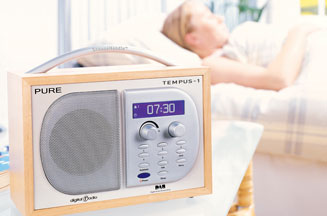
Its creation has been a long time coming - too long some think - given that DAB has faltered, not helped that there is no finalised deadline for digital switchover and that the digital transmission network is incomplete and in need of further investment.
Tim Davie, the BBC's director of audio and music and a former BBC marketer, will be the first to chair the Council and there is optimism that his leadership will give some much-needed direction to the industry.
Andrew Harrison, chief executive of the Radio Centre says the main aim of the Radio Council is to show ‘joined up thinking' and encourage the Government to help support the industries investment. ‘It's hoped the Government will set a date for switchover and see the industry is serious about working together to achieve that goal,' he says.
Presenting a united front is something that has eluded the radio groups for too long. Travis Baxter, managing director of radio at Bauer, says in the early days of digital radio the big companies didn't have a collective view.
‘Some supported a digital platform and some didn't. Now it has become clear that we can't have a robust and successful digital network without everyone being engaged and putting a foot on the accelerator.'
Lord Cater in his Digital Britain report indicated the digital switchover for radio could start in 2017. A solid infrastructure needs to be in place before then however and 50% of radio consumption needs to be through a digital platform. Currently this is at only 18%.
The Council has already set itself some challenging targets and will develop an online player to act as an open platform that streams all live UK radio in one place. Simon Bevan, head of broadcast at Vizeum, says this idea of a ‘one stop shop' is a sensible strategy while Louise Reid, associate director at Maxus, agrees that something big is needed as at the moment there is not enough force or determination to push radio forward. ‘2008 was the year of the merger and 2009 should be the year to really progress digital,' she says.
One of the most important issues at the heart of the Radio Council is self-promotion and making sure digital radio becomes something listeners want to engage with. The key to a faster switchover is listenership but in order for this to increase, digital radio needs to be easily accessible everywhere a consumer might want to listen to it.
It is clear that if the Radio Council can open up further investment from the government in order to complete a transmission network, and get manufacturers behind DAB technology, the path towards a switchover will become a whole lot smoother.

